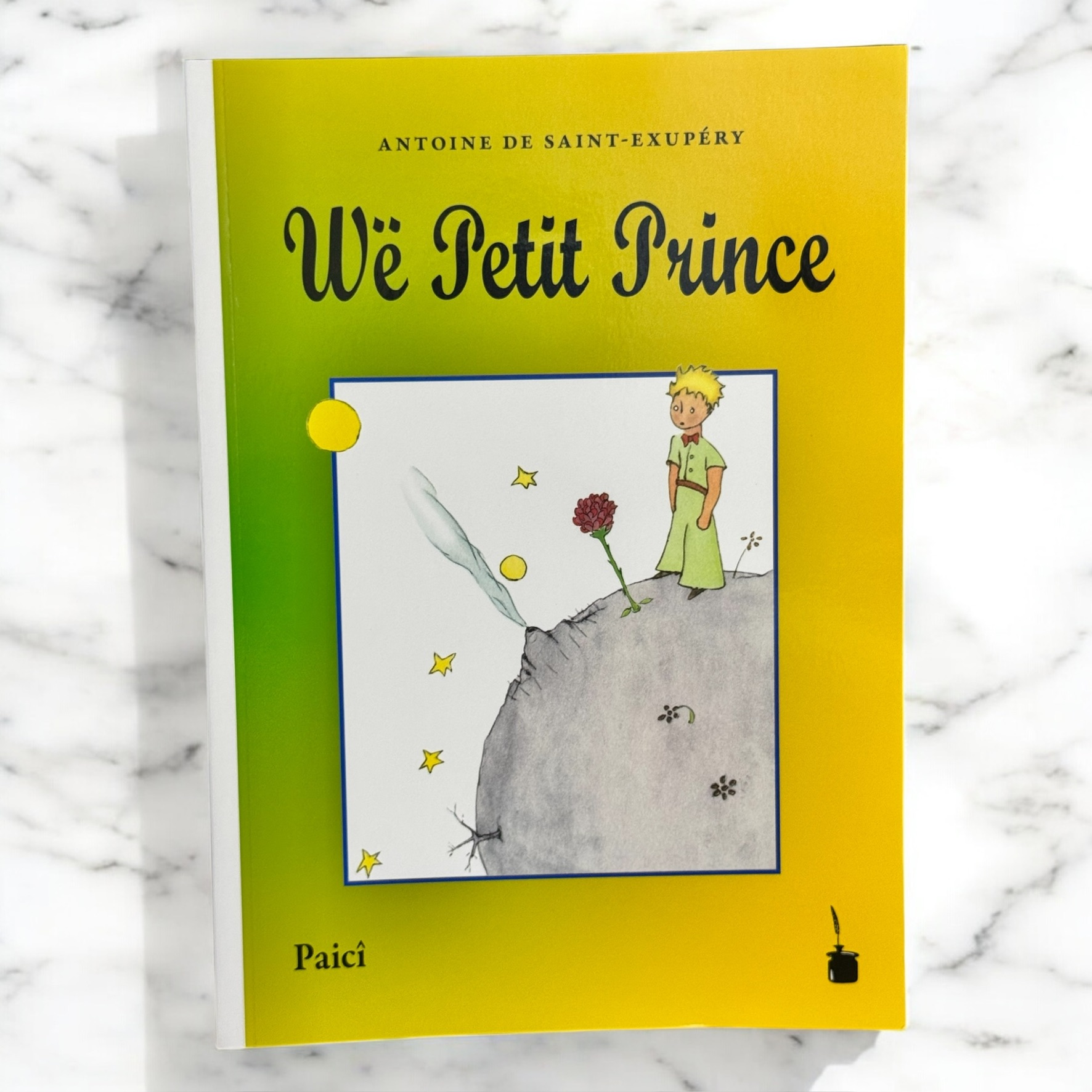
Wë Petit Prince — in Paicî language.
Paicî is one of the most prominent and linguistically fascinating languages of New Caledonia, an archipelago in the southwest Pacific, where it stands as the largest indigenous language by number of speakers. Part of the Oceanic branch of the Austronesian language family, Paicî is closely related to other New Caledonian languages, such as Cèmuhî and Ajië, and more distantly to languages spread across Melanesia, Polynesia, and Micronesia. What makes Paicî particularly intriguing is that, despite being part of the Oceanic family, it retains a remarkably complex phonological system—most notably a set of nasalised vowels—which sets it apart from many of its simpler phonetic relatives across the Pacific. Spoken mainly in the north-central region of Grande Terre, the main island, Paicî carries within its sounds the memory of centuries of ancestral presence, migration, and adaptation to the unique highland and coastal environments of the island.
Historically, Paicî-speaking communities were organised into intricate clan-based societies, where land, lineage, and ritual were tightly intertwined. The language was—and remains—a vital carrier of oral tradition, used to transmit myths, genealogies, environmental knowledge, and social laws across generations. Ritual speech, song, and storytelling in Paicî play essential roles in ceremonies, such as land negotiations, marriages, and mourning rites, reinforcing collective memory and social cohesion. Culturally, the Paicî-speaking people are renowned for their skilled craftsmanship, including wood carving and weaving, as well as for their vibrant ceremonial life, which often features dance, feasting, and symbolic exchanges that tie the living community to its ancestors and land.
In relation to other Oceanic languages, Paicî exemplifies the incredible diversity found within the Austronesian family, demonstrating how, even within the relatively small geographic space of New Caledonia, languages have evolved distinct grammatical and phonological systems due to environmental, social, and historical factors. While related to other Oceanic languages, Paicî retains unique features not widely shared across the broader family, highlighting the rich local adaptations that mark New Caledonia’s linguistic landscape. Politically and socially, however, Paicî—like many indigenous languages worldwide—faces pressures from the dominance of French, the official language of New Caledonia, particularly in education, media, and administration.


